Today marks a milestone as we grant an unprecedented $92,000 to support 23 predator free community initiatives.
We select outstanding Predator Free Communities from around the country and give them funding to purchase trapping equipment. These backyard groups make up the heart and soul of the Predator Free 2050 mission. The funding will fuel new groups and bolster the growth of existing ones.
Together, we’re all propelling Aotearoa closer to a predator free future.
Groups funded by region
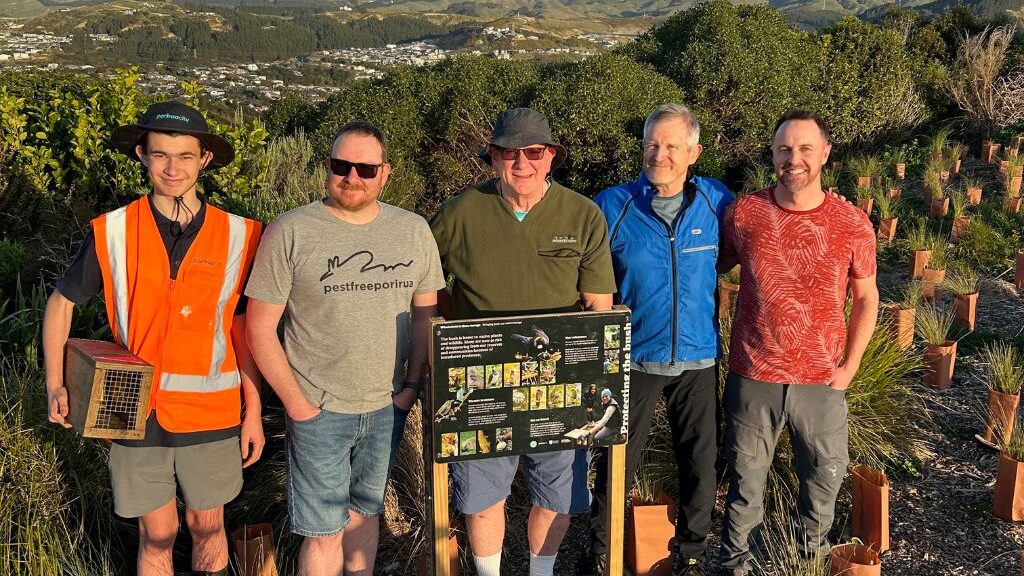
Auckland
Mahurangi West Pest Inc.
Rats crawling around in roof spaces has caused sleepless nights for some in this coastal village. A surge in rats in the residential area and stoat sightings has compelled Mahurangi West Pest Inc. to supercharge their trapping efforts and inspire youth involvement. Funding from the Trust will allow more gear to be purchased to mobilise more residents to the cause.
Pest Free Waitākere Ranges Alliance
Nestled in the scenic Waitākere Ranges, a coalition of conservation groups wants to revive forgotten pest control tools. Traps and bait stations lying dormant in gardens, garages or sheds will be rescued, refurbished and redistributed to backyard trappers.
Trust funding empowers the alliance to provide fresh traps at gatherings, enabling people to exchange their old ones for restoration. Each person will get one-on-one training and become part of a community group to ensure lasting motivation and impact.
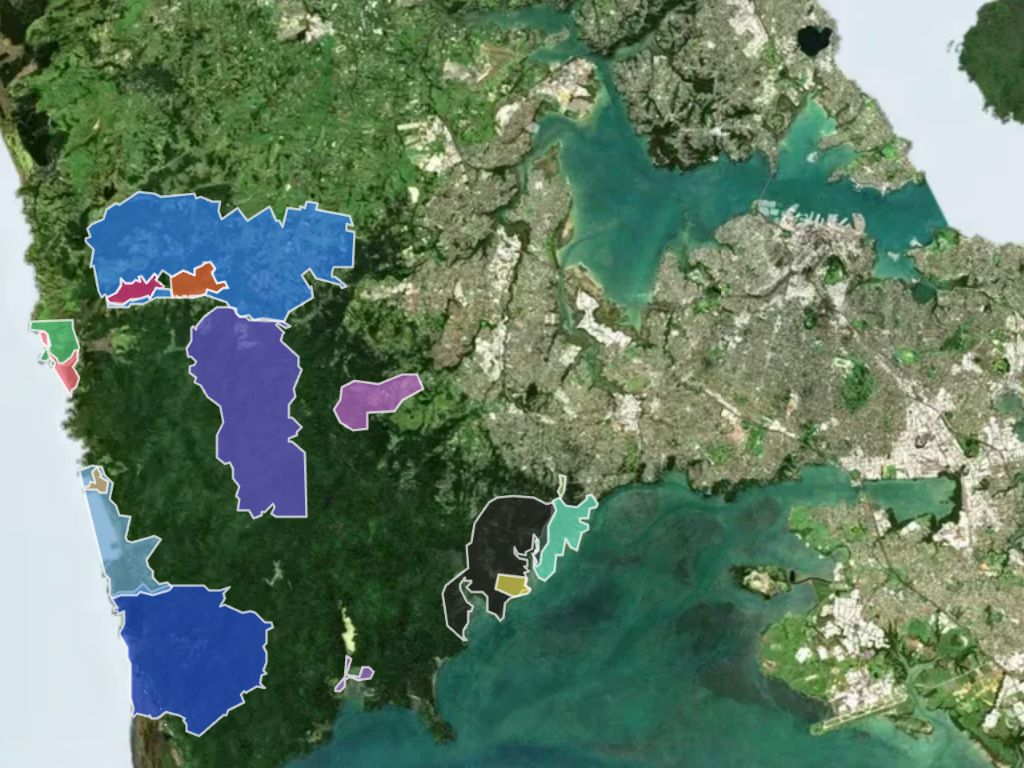
Sandspit Residents and Ratepayers Association
This group wants to achieve predator free status by 2030 in their neighbourhood of 250 households, and there’s no stopping them. With regular ongoing possum and rat control, some residents already report a resurgence in native bird populations. Located at the forefront of the Mahurangi East Peninsula, it forms a crucial link in the “virtual fence” protecting predator control efforts up the peninsula. Funding for equipment will help to entice even more residents to join.
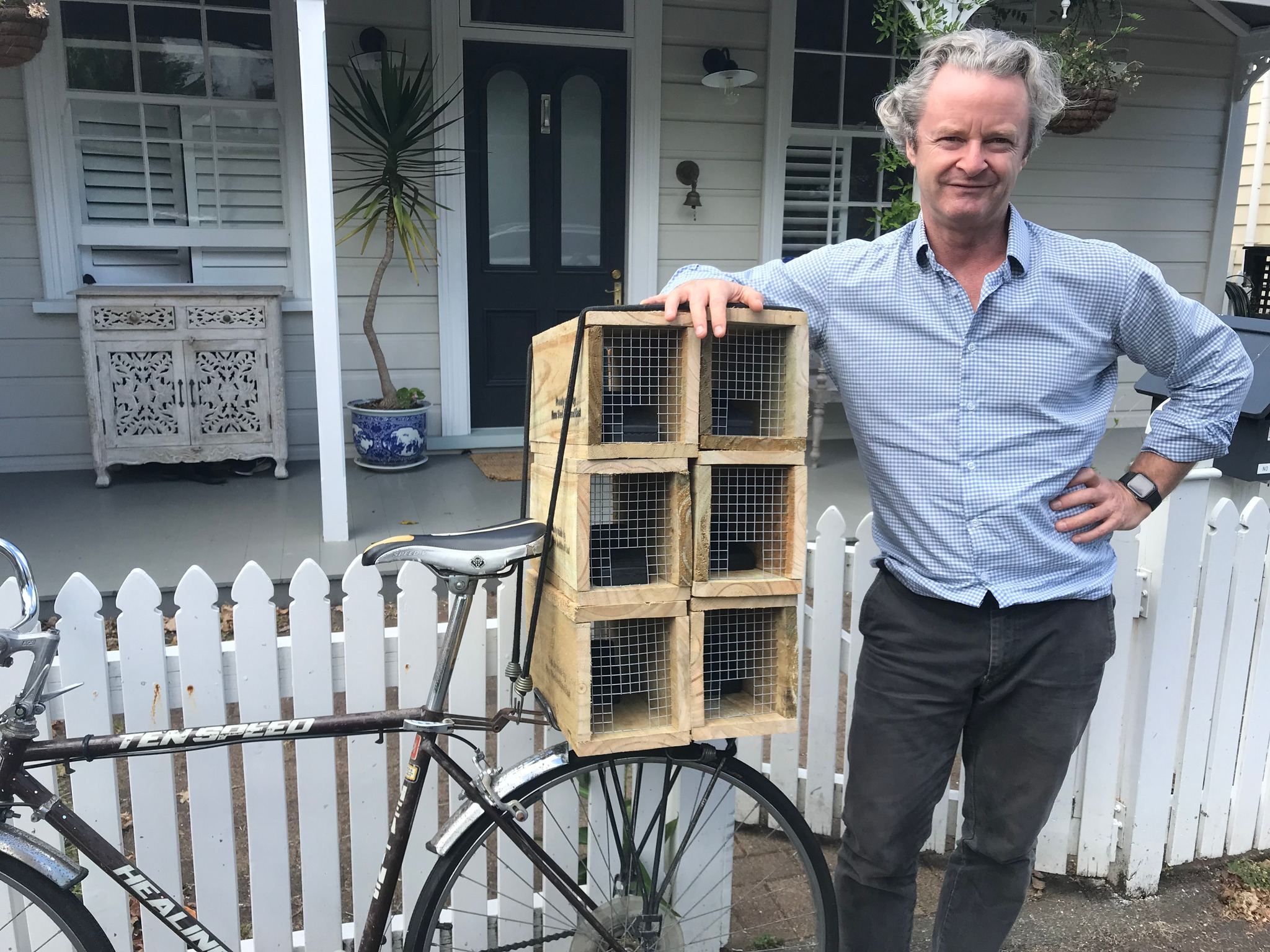
Restoring Takarunga Hauraki Charitable Trust
To be crowned the first pest free peninsula in Auckland would be a shining glory for one of Auckland’s many peninsulas. For this well-organised and determined community, removing predators goes beyond the accolades; it would mean the protection of special ecological areas and safety for populations of 13 different shorebird species.
With funding, the group will expand out from reserves and into backyards to create a halo of protection for the coastal areas and wildlife.
Waikato
Predator Free Waihī
At the foot of the Coromandel Peninsula, Predator Free Waihī strives to educate the community about the plight of native wildlife and equip them to protect it. The idea is straightforward: more awareness, a surge in engaged trappers, diminishing predator populations, and a resurgence of native fauna. Traps funded by the Trust will help kickstart the initiative to grow into a backyard trapping network, trap library, and reserve trap network.
Moehau Environment Group
Stoats are swimming across the river and brazenly running around properties in Coromandel Town, and the residents are growing concerned. Moehau Environmental Group is keen to set up the first backyard trapping network. Locals want to trap these stoats to protect the pāteke (brown teal), pāpango (scaup), kōtuku ngutupapa (royal spoonbill), kākā, ruru (morepork), kererū and other native species that visit the river and backyards in town.
With a community working on getting back on its feet after recent weather events and a tourist lull, funding from the Trust will get traps into people’s backyards.
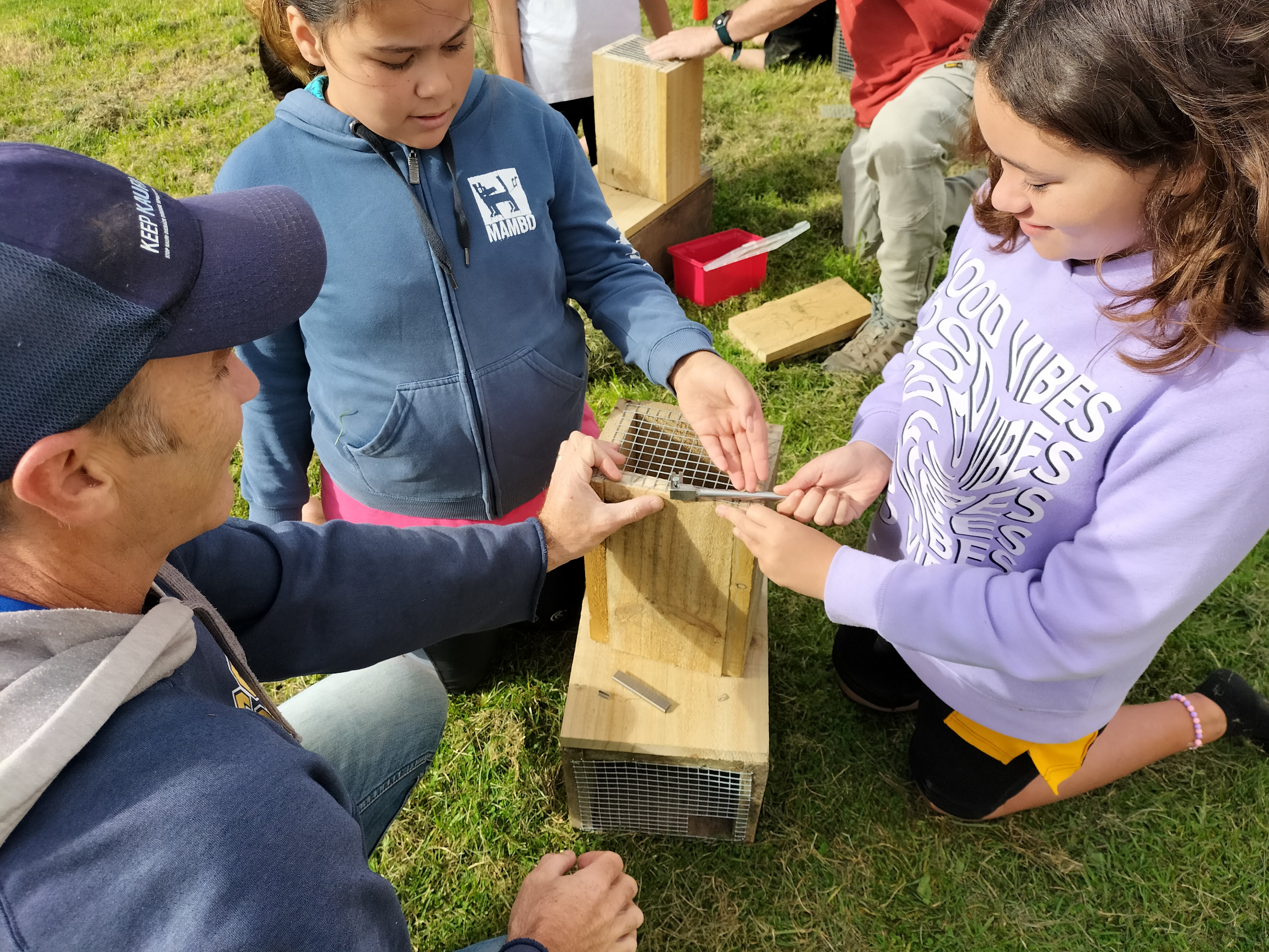
Wairakei Village
The residents of Wairakei Village aren’t content to sit idly by while other trapping projects and large-scale operations kick off around Taupō to help native wildlife thrive. Guided by Predator Free Taupō, the small community of 300 households and primary school will join the action with family fun days, trap-building workshops, and getting traps into backyards. Birds have begun to spill over from the predator-proof fenced Wairakei Golf and Sanctuary – the time for the community to rally is now.
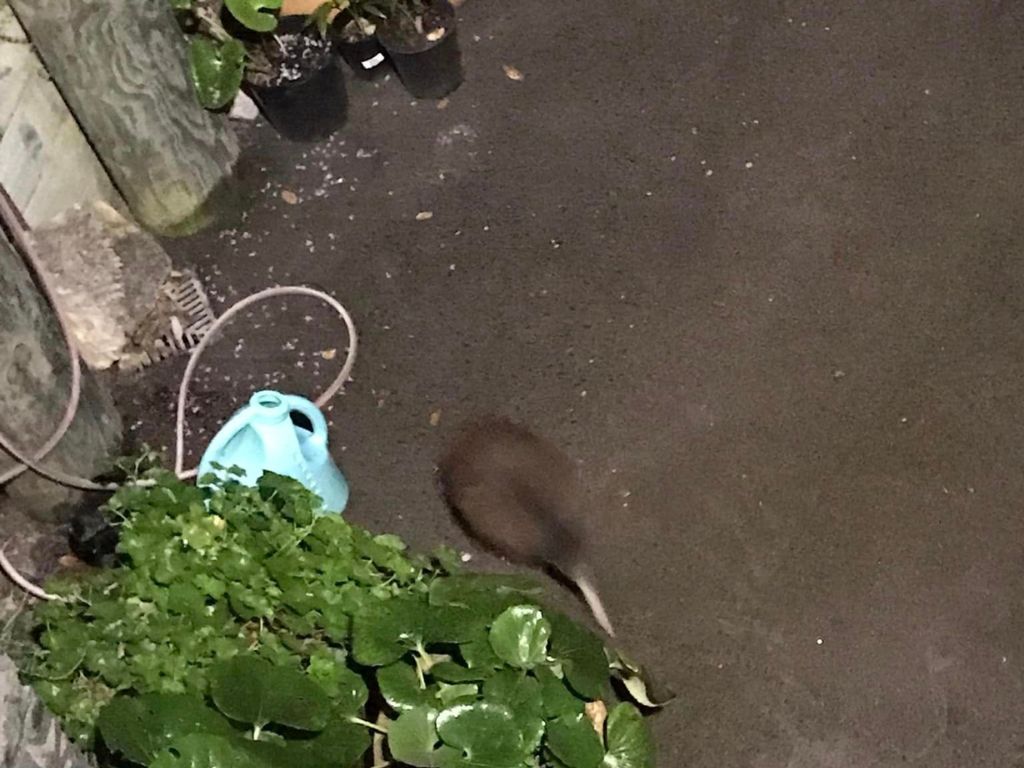
Predator Free Pāuanui
The Big Pāuanui Bird Count of 2023 revealed 40 bird species living in the popular beach settlement – including kiwi roaming around backyard patios! Motivated by this initial species census, a group of volunteers have taken up the task of predator trapping.
Although Pāuanui is predominantly holiday homes, a year-round community Predator Free Pāuanui is determined to educate and unite around the mission.
Wellington
Predator Free Masterton
For too long, urban predator control in the Wairarapa’s largest town has lacked organisation and empowerment. Predator Free Masterton is launching to empower and educate locals, equipping them with the tools and knowledge to help control rats, possums and stoats in their neighbourhoods. It all starts with the passion and determination of a dedicated few, amplified with backing from local conservation collectives and funding from the Trust.
Predator Free Featherston
Excitement for the predator free goal is soaring in this picturesque town at the foot of Rimutaka Hill. The inaugural task for this new community group is to rally the Featherston locals around the predator free mission and create a sense of camaraderie.
Surrounded by farmland and bush, introduced predators are constantly invading Featherston. Drawing inspiration from Wellington’s successful predator control efforts, the organisers want to place 500 rat traps in Featherston backyards – roughly half the houses in town.
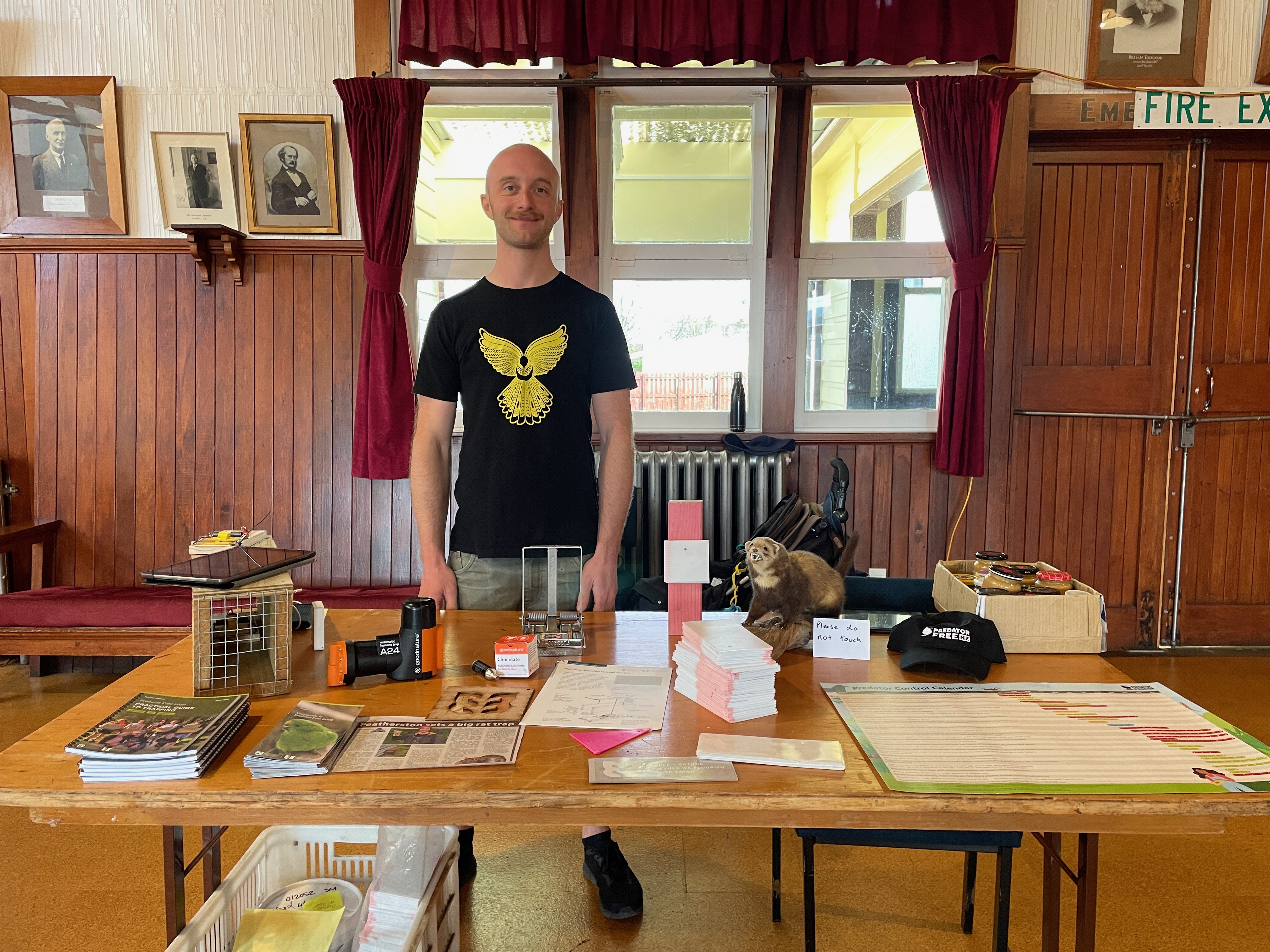
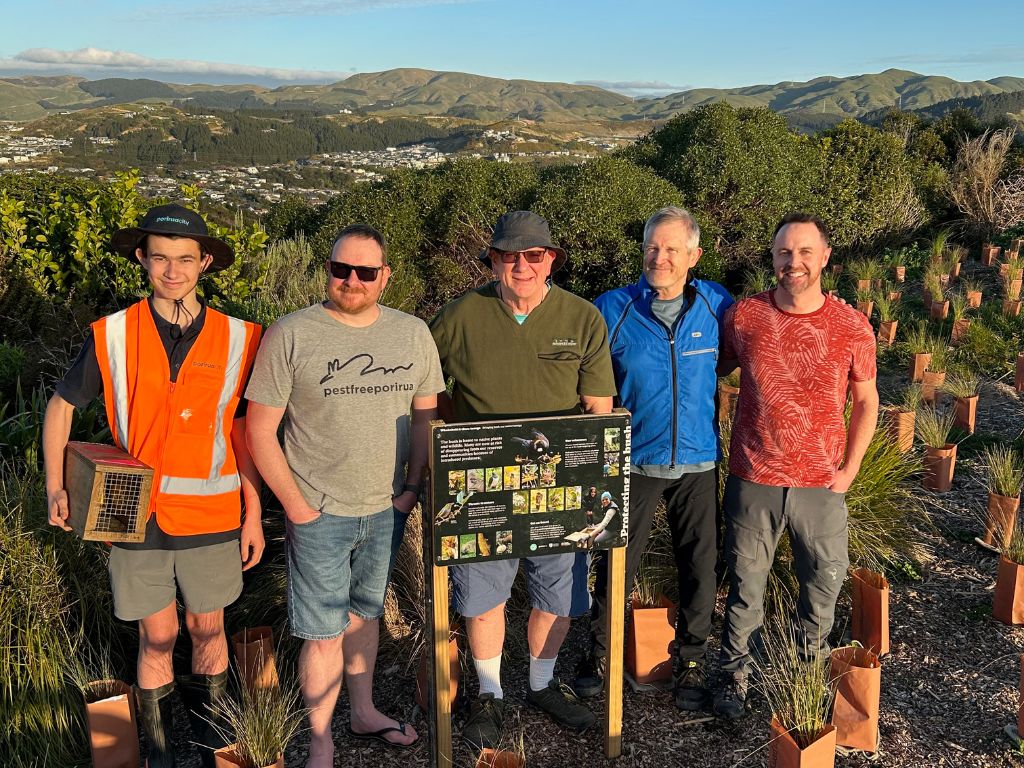
Pest Free Whitby
Around since 2018, this coastal community group is now hungry for renewed momentum. Covid lockdowns, burnout and new technology like Trap.NZ means the initially distributed traps have become scattered and dormant.
An injection of funds will reinvigorate the group, propelling them towards their goals of equipping dedicated locals with traps. An impressive lineup of active trappers and ecologists have come together to coordinate efforts.
Canterbury
Predator Free Southshore/South New Brighton
The dream is to have white-flippered penguins nest again on the Southshore Spit Reserve in Christchurch. But dreams don’t just happen by wishing them, so the local community in Southshore are putting in the teamwork to make the dream work. With guidance and moral support from successful community groups in central Christchurch and start-up funding from the Trust, this group will put a trap in every five backyards by Christmas.
Predator Free New Brighton
In the Christchurch coastal suburb of New Brighton, there’s an opportunity to transform the dunes, wetlands and expansive public green space into safe places for native species to flourish under the protection of predator control. This new community group is up for the challenge. It is also ideally located to complement the already existing predator free groups in the area and foster conservation action along the east side of the peninsula. To garner community support, the organisers will educate on trap usage and the value of protecting native species from introduced predators.
Otago
Predator Free Kirimoko
Kirimoko isn’t your average subdivision. Residents of the Wānaka neighbourhood embrace the “Kirimoko Code”, committing to solar energy use, composting, and other environmental requirements. With a nearby hill of newly planted native trees and flourishing gardens full of native plants beginning to attract native wildlife, the residents have also embraced the Wānaka Backyard Trapping ethos to take on rats, possums, mustelids and hedgehogs. Funding for traps will help the community towards the ultimate goal of a “rousing dawn chorus.”
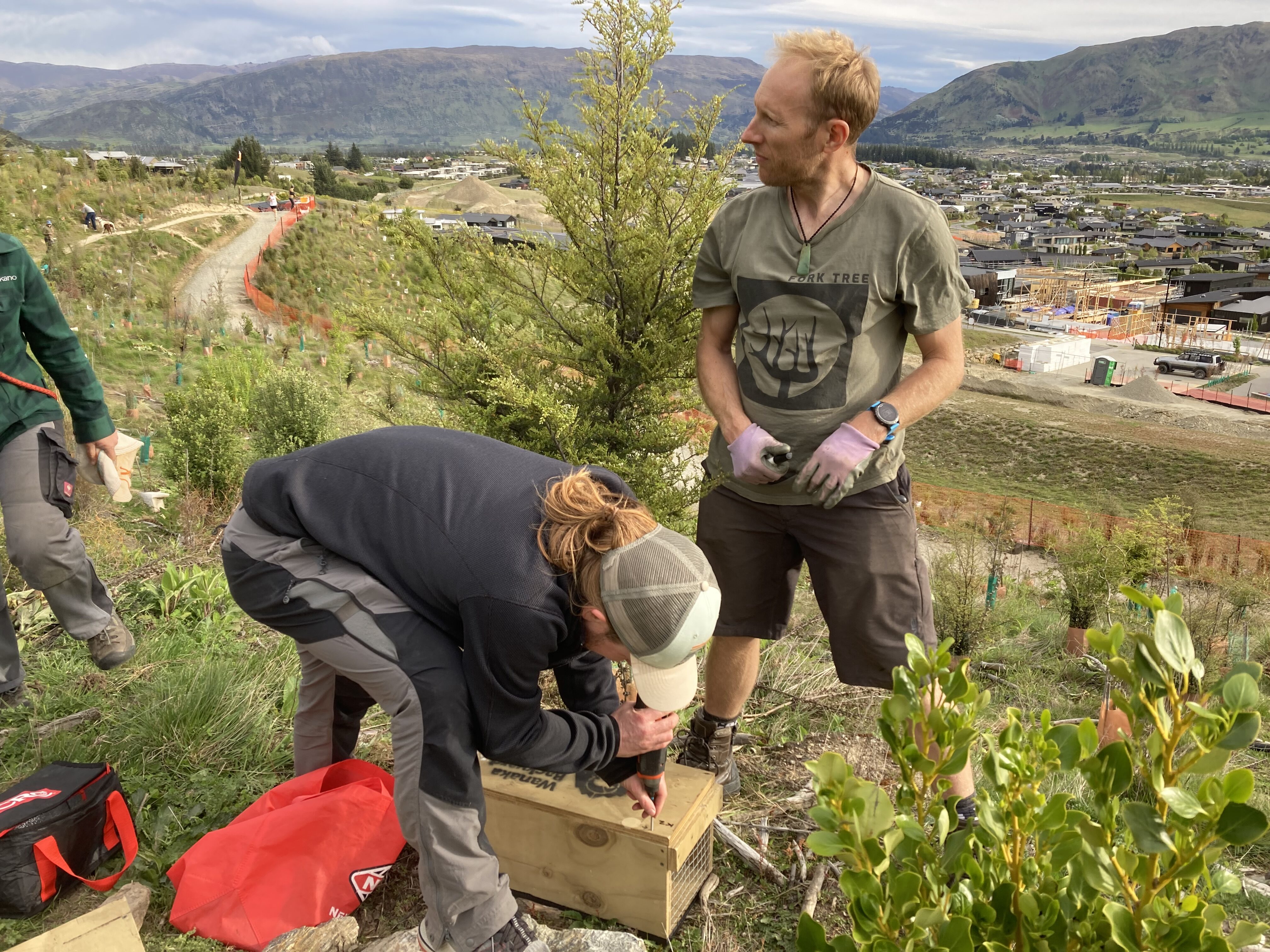
Jacks Point Residents and Owners Association
Native plants dominate this estate in Queenstown: roadsides exclusively flaunt native greenery, and 75% of residential plantings must be native species. Tauhou (silver eyes), tūī and korimako (bellbird) enjoy the flourishing native plants, but predators pose a threat. Enter a residents and owners association subcommittee to take on the backyard trapping project, fueled by equipment and tools from the Trust, to jumpstart their mission.
Predator Free Puahuru
The dedicated volunteers of Predator Free Puahuru run traplines on public land along the Shotover and Kawarau rivers to help the unique braided river birds that call these rivers home. The time has come to extend into the backyards of residential properties in the Shotover Country and Lake Hayes estates. Two decades of thoughtful planting has nurtured native habitat but introduced predators still roam unhindered. With an initial aim of securing 50 backyard traps, Predator Free Puahuru is poised to expand its reach.
In addition to the new 16 groups funded, several highly effective existing community groups received a funding top up, to meet the growing demand for their trapping initiatives:

